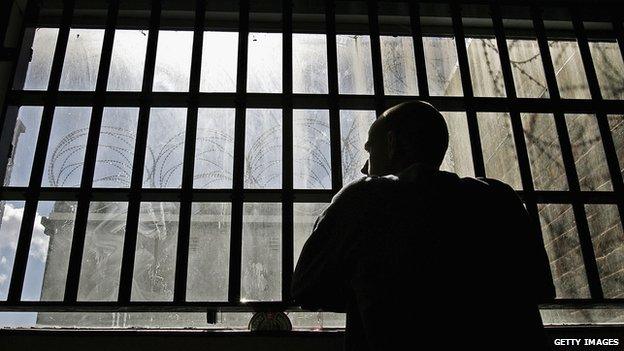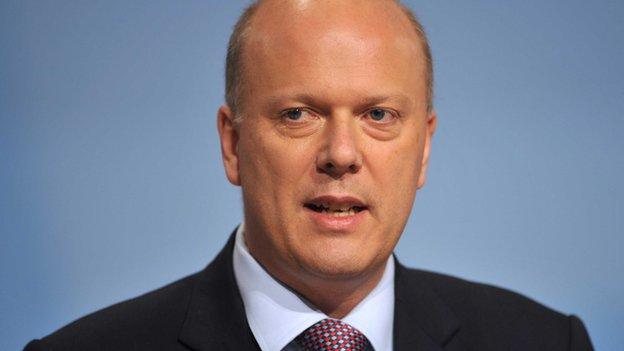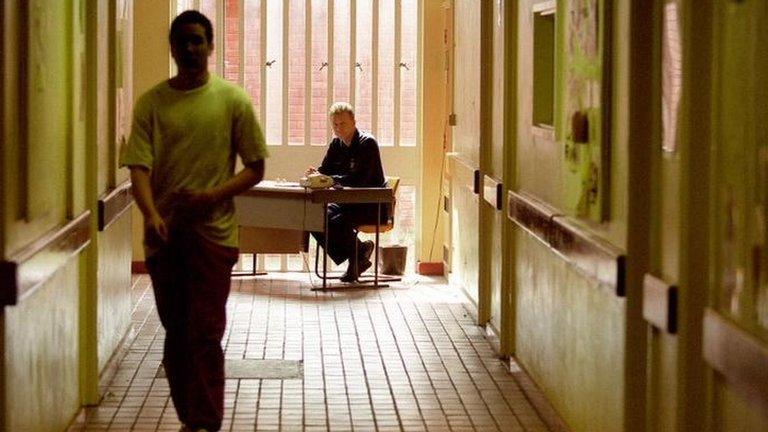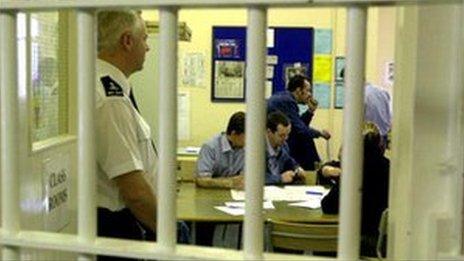Bedtimes introduced for young offenders
- Published

All young offenders will face strict bedtimes for the first time, Justice Secretary Chris Grayling has announced.
From August, 15-17 year-olds in young offenders institutions in England will have to be in their cells with the lights out by 22:30.
Mr Grayling said enforcing the blanket policy across all five YOIs would give teenagers more structure.
Critics say the government should be focusing on more important prison reform issues.
Mr Grayling said it was "crucial that young people, most of whom have had chaotic and troubled lives, finally get the discipline so badly needed to help turn their lives around".
"In some prisons young people are allowed to go to bed when they please," he claimed.
"I don't think that is right. Stopping this inconsistency and introducing a strict lights-out policy is all part of our approach to addressing youth offending. Those who fail to comply will face tough sanctions."
The Ministry of Justice (MoJ) said the plans would stop the teenagers from "staying up all night watching TV".
Offenders who did not observe the new bedtimes would be penalised and lose privileges like access to a television, it said.
'Terribly wrong'
Juliet Lyon, director of the Prison Reform Trust, criticised the move, claiming it would exacerbate physical restraint problems.
She said the prison system was already struggling with a host of more pressing problems - among them overcrowding, budget cuts and "dangerously low staffing".
"As most parents of teenagers know, common-sense discussion, constructive activity, setting reasonable boundaries and encouraging personal responsibility all work better than new hard and fast rules backed by petty restrictions and harsh punishments."

The move is part of Justice Secretary Chris Grayling's plan to "bring more order" to centres
Frances Crook, chief executive of the Howard League for Penal Reform, warned the move could be a "death sentence" for offenders.
She told BBC Breakfast that self-injury rates in young offenders institutions were an "epidemic" that needed to be dealt with and called for a greater emphasis to be placed on improving physical activities and education for offenders.
"I think politicians seem to live in a fantasy world where they think prisons seem to be something like a public schools - well they are not, they are the opposite," she said.
The new bedtime rule is part of an overall reform of young offenders institutions in England, which will see the number of hours offenders spend in education doubled to 24 every week.
'Difficulties'
BBC News home affairs correspondent Danny Shaw said the move was part of Mr Grayling's plan to "bring more order" to the centres.
"There is an issue about whether it can be enforced because there is, I'm told, no central switch in these young offenders institutions that can actually turn out the lights at 22:30 and it will depend on the young person in the cell to do it themselves. Obviously that could create difficulties for prison officers," he said.
Earlier this month Mr Grayling unveiled detailed plans for the first "secure college", to open in Leicestershire in 2017.
The £85m facility will house up to 320 offenders aged 12 to 17.
It is meant to be a move away from the "traditional environment of bars on windows" and focus instead on education.
As of April this year, there were 827 young people serving custodial sentences in England's five young offenders institutions, according to the MoJ.
- Published11 June 2014

- Published17 January 2014

- Published1 May 2013
